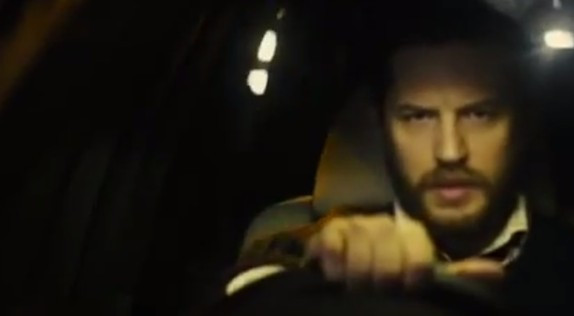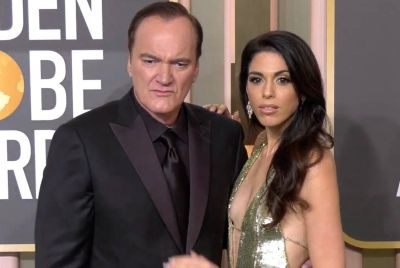Locke Review: Minimalist Road Movie for an Over-Connected Culture

Once upon a time at the Edinburgh Festival, a leftfield theatre group promised a production of Stanley Kubrick's 2001: A Space Odyssey in the back of a Mini Metro. Probably not many people saw it, but it became a well-worn joke that someone had the audacity to try and render the scale and august majesty of that epic inside a car, and a crappy car at that.
In Locke, writer/director Steven Knight allows his narrative to evolve in a much better car than a Metro. But he eschews practically every tool, effect and component that you now expect to experience when you watch a film.
Ivan Locke is a building works director who is impaled on a three-horned trilemma. He runs a tight ship, so we are told. This is what he is trying to do as he drives down the M6 motorway towards London, attempting to impose his will over a series of unfolding events that make up the film's "plot", via the telematics system in his car.
Providing a précis of this man's dissolving universe would be a disservice to the film. Like an onion being peeled, layer upon layer of emotion is exposed until Tom Hardy's tough, pragmatic exterior is finally demolished. You'll laugh, you'll cry, as they say. From start to finish the writing is subtly and completely lapel-grabbing.
Interestingly, there doesn't appear to be much in Knight's existing writing and directorial oeuvre you can easily equate with Locke: Eastern Promises is a kind of sub-History of Violence, Cronenberg mis-adventure set in London about Russian gangsters; Dirty Pretty Things relies on the grimy exoticism of the illegal organ transplant trade; Redemption looks like it should simply be filed under "Jason Statham". Locke, like its own trajectory, seems to have been created in a cocoon, blooming under glass into something utterly dazzling and without precedent.
In the context of contemporary cinema a return to minimalism is refreshing; it worked well in Gravity, for example. In terms of what could be called our collective cultural unconsciousness, these films represent modern anxieties about isolation, loss, and connectedness, the latter in its technologically enabled insistence; what was once described by the Wall Street Journal as the "over-connected culture".
Concrete, moulded into cityscapes and their interlocking arteries and hinter-belt sprawl, becomes almost like a character in Locke: "I'm doing this as a favour to the concrete," he says at one point. The city's ripped backsides and passing illuminations are normally the cinematic province of Los Angeles. This aspect of modern life was well depicted in the classy appearance of Nicholas Winding Refn's Drive, for instance.
However, the leading practitioner of freeway formalism is Michael Mann: lights in an underpass sliding across a windshield near the end of Heat expresses something beyond words; the lights of LA stretching into the desert, atomised, simultaneous and empty exert a choke-hold, as De Niro confides to his short-term girlfriend, "I'm alone. But I am not lonely".
Such meditations are well woven into yarns about runaway space stations or botched bank heists. Locke, by contrast, must be commended on its bravery and purity. It proves you don't need all that stuff to make a thriller: when a sirening volley of police cars hurtle past Ivan Locke on the motorway, it's rather like breaking the third wall in a theatre; nobody cares who they are chasing.
Tom Hardy is utterly convincing; a powerhouse of understatement, like the film itself. By the time we have reached Luton, we know Locke; we believe he would never break the speed limit, for instance. We have explored the structure of his will, which has become insufficiently free, a choice whose voluntarity is insufficiently pure. The exit, when he takes it, comes as a moment of complete catharsis.
Locke is showing in cinemas now.
© Copyright IBTimes 2025. All rights reserved.






















